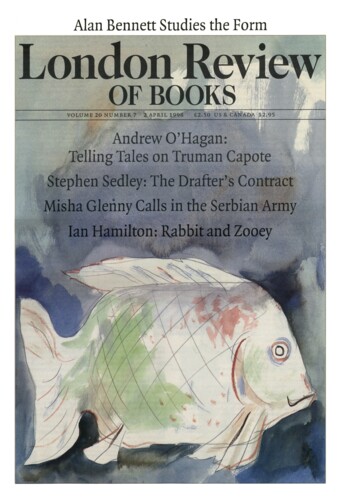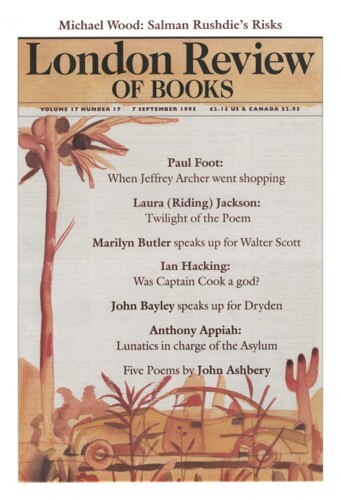No Talk in Bed: Confucius
Owen Flanagan, 2 April 1998
According to the best estimates, Confucius lived from 551 to 479 BCE. The Analects is the name given to the short book of his wisdom, consisting of proverbs, maxims, memorable advice, short parables and keen observations about how best to live. The text is the result of an editing and compilation process involving two generations of Chinese disciples, and completed around 400 BCE, possibly in the same year that Socrates met his end in Athens. Analects, meaning ‘literary gleanings’ or ‘miscellaneous pieces and passages’, was chosen as the title for this collection of Confucius’ sayings by a 19th-century British translator, James Legge. The title is obscure, but it has stuck. Chichung Huang, in his literal translation, makes a strong case that the original title, Lun Yu, is best translated as Ethical Dialogues. Thinking of it in this way, as a book of ethics, presented mostly in the form of sayings that begin ‘The Master says’ or with questions followed by answers from the Master or one of his disciples, on matters of virtue and vice, moral education, the way of life of the good person, seems just right.‘


